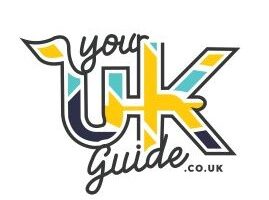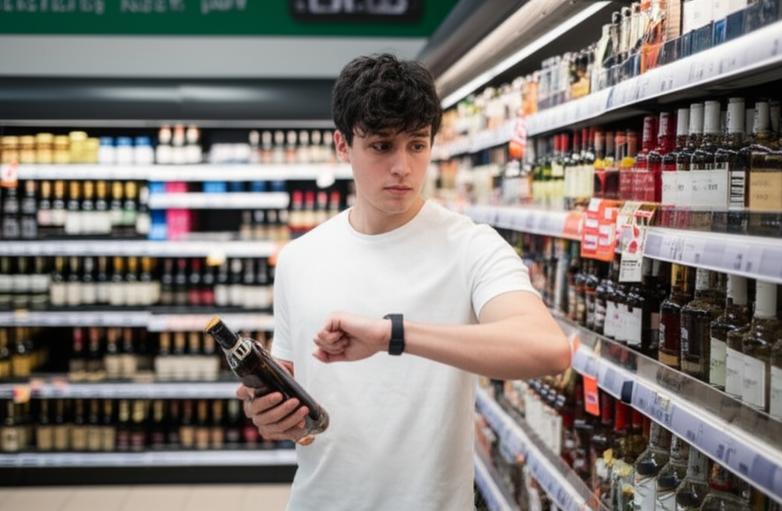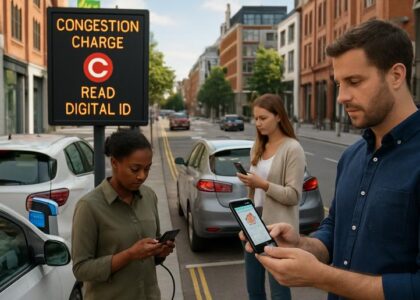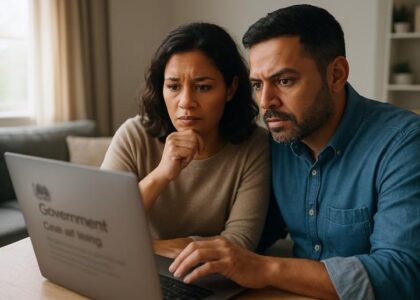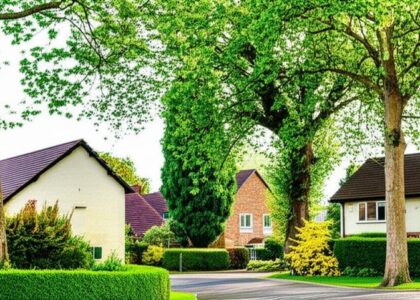Ever found yourself wondering if you can grab a bottle of your favourite wine late on a Sunday, or if every pub in the UK shuts its doors at the stroke of midnight? Trust me, you’re not alone! The world of alcohol licensing can feel a bit like a maze, with rules and regulations that change quite a bit depending on whether you’re in England, Wales, Scotland, or Northern Ireland. It’s easy to get confused, especially if you’re not familiar with each region’s quirks.
Whether you’re heading to the supermarket or out for a pint at the local, knowing when and where you can legally buy alcohol is super important. It helps you avoid those awkward moments at the till when they say “sorry, no more alcohol sales!” and, of course, keeps you on the right side of the law.
This article is here to clear things up! We’re going to break down these often-tricky rules for different types of places and regions. Our goal is to give you a clear, easy-to-digest guide that takes the mystery out of alcohol sales in the United Kingdom, so you’ll always be in the know when you’re planning your next drink.
Understanding UK Alcohol Licensing: The Big Picture
The Licensing Act 2003 (England and Wales): Hello, Flexibility!
Before 2005, if you were in England and Wales, alcohol sales had pretty fixed, national hours. That often meant a mad dash to the bar before the dreaded “last orders!” But then came the Licensing Act 2003, which totally changed the game. It brought in a whole new level of flexibility, moving away from a one-size-fits-all approach.
This pivotal law essentially gave local authorities the power to hand out specific licenses tailored to individual businesses. So, instead of a blanket rule, a local pub could apply for hours that made sense for them. This even opened the door for places to get extended opening hours, and yep, even 24-hour licenses!
Now, while the idea of buying alcohol around the clock might sound like it’s everywhere, it’s actually pretty rare for those 24-hour licenses to be granted. Local councils are super careful, weighing up things like public safety, preventing noise or trouble, and local demand before they approve any extended hours. The whole point of the Act was to modernise alcohol sales, trying to find that sweet spot between businesses being flexible and communities staying happy and safe.
Key Principles of Alcohol Sales in the UK
Even though the rules vary by region, the way alcohol sales work across the UK is built on a few core ideas. In England and Wales, local councils are the big bosses. They’re the ones who grant and oversee alcohol licenses, which don’t just set the hours but also lay out the conditions for selling alcohol responsibly. This local control means the rules can actually fit the unique vibe and needs of different communities.
There’s also a fundamental difference between “on-licence” and “off-licence” sales. Think of “on-licence” as places where you drink the alcohol right there, like pubs, bars, or restaurants. “Off-licence” is for places like shops, supermarkets, and convenience stores where you buy alcohol to take home and enjoy elsewhere. But here’s the kicker, no matter where you are or what kind of licence it is: it’s illegal for anyone under 18 to buy alcohol anywhere in the UK. This age limit is absolutely non-negotiable and a cornerstone of how alcohol is sold here.
Where and When: Off-Licence Sales (Shops, Supermarkets, Convenience Stores)
Standard Hours for Grocery Stores and Convenience Shops in England and Wales
Alright, let’s talk about grabbing a bottle from your local grocery store, supermarket, or corner shop in England and Wales. Generally, these places have pretty standard hours that most of us are used to. Lots of bigger supermarkets might open bright and early, say 7 am, and stay open until quite late, often 11 pm, or even 24 hours in some spots. But here’s the important bit: these general opening times don’t automatically mean you can buy alcohol whenever the shop is open.
For most off-licences in England and Wales, alcohol sales typically stop by 11 pm. Yep, even if the shop itself is still open for other groceries way past that time. So, if you pop into a 24-hour supermarket at midnight, you’ll probably find the alcohol aisles taped off or the tills just won’t let you buy any booze. These restrictions are all thanks to the specific alcohol licence the place holds, which local authorities grant and often include an 11 pm cut-off for alcohol transactions.
Sunday Trading and Alcohol Sales in England and Wales
Sundays throw another small wrinkle into the mix, but it’s usually not as complicated for alcohol as you might think. Larger shops (over 280 square metres) in England and Wales usually have to stick to just six consecutive opening hours on Sundays, often from 10 am to 6 pm. However, when it comes to alcohol sales within those hours, it generally follows the same pattern as weekdays, as long as it falls within the shop’s licensed hours.
What this means is, if a supermarket’s licence says they can sell alcohol until 11 pm on weekdays, that same end time usually applies on a Sunday, regardless of when the rest of the store closes. The key thing to remember is always the individual alcohol licence. Smaller convenience stores and off-licences aren’t bound by those larger shop Sunday trading restrictions, so their alcohol sales typically follow their usual licensed hours, which often stretch to 11 pm.
Extended and 24-Hour Licenses: What They Mean for Off-Licences
The idea of being able to buy alcohol from a shop at literally any hour sounds pretty cool, right? But honestly, 24-hour alcohol sales for off-licences in England and Wales are pretty rare birds. The Licensing Act 2003 *does* allow places to apply for licenses that go beyond the usual 11 pm cut-off, or even for true 24-hour operation, but local councils scrutinise these applications really, really hard. Their decision often comes down to things like the potential for public nuisance, crime, disorder, and overall public safety.
In reality, if an off-licence *does* have an extended licence, it’s more likely to be for just an hour or two past 11 pm, rather than being genuinely round-the-clock. You might see these in specific situations, like a late-night convenience store in a bustling city centre where there’s a clear need and no big negative impact on the local community is expected. But for most of us, that 11 pm cut-off remains the go-to for supermarket alcohol hours in the UK.
Enjoying a Drink Out: On-Licence Sales (Pubs, Bars, Restaurants)
Typical Opening and Serving Hours for Pubs and Bars in England and Wales
If you’re planning to enjoy a drink in a social setting, like a pub or a bar in England and Wales, you’ll generally find the hours are a bit more flexible than for off-licence sales. Most pubs tend to open their doors around 11 am or 12 pm, ready for lunch and early afternoon drinks. Closing times, though, can really vary a lot depending on the specific licence each place holds.
While many traditional pubs might call “last orders” around 11 pm or midnight, it’s becoming increasingly common, especially in city centres, for pubs and bars to have licenses that let them serve much later. This flexibility is a direct benefit of the Licensing Act 2003, giving venues the chance to apply for hours that fit their business model and the people they serve. So, it’s pretty normal now to find places serving until 1 am or even later on weekends, offering a much more extended evening experience.
Late-Night Venues and Special Occasions
The flexibility from the Licensing Act 2003 truly shines for late-night spots like clubs and bars built for evening fun. These places often get licenses that let them stay open and serve alcohol much, much later—think 2 am, 4 am, or even 24 hours in some unique cases. The specific closing time for these venues is a crucial part of their operating licence, so if you’re planning a really late night out, it’s always a good idea to check directly with the venue beforehand.
What’s more, special events and occasions can sometimes mean temporary extensions to these hours. Local councils can issue what are called Temporary Event Notices (TENs). These allow a venue to extend their alcohol sales and entertainment hours for a limited number of days each year. You’ll often see these used for things like New Year’s Eve, local festivals, or private functions, giving places a chance to operate outside their usual licensed hours for a brief period, adding to the flexibility of What Time Can You Buy Alcohol.
Food Service and Alcohol Exceptions
Unlike some countries that have super strict rules tying alcohol consumption to food service, the regulations in England and Wales are generally a bit more relaxed on this front. Restaurants that serve alcohol typically have licences allowing them to do so throughout their operating hours, which can often stretch later than standard pub hours, especially if they’re still serving meals. The focus here is usually on the establishment’s main purpose and its overall licence conditions.
It’s pretty unusual to find specific rules in the UK that allow alcohol to be served significantly later *only* if you’re having it with a meal, unlike what you might find in some other European nations or parts of the US. Instead, a restaurant’s licence will spell out its alcohol serving hours, and these hours are generally independent of whether you’re ordering food. Of course, responsible drinking guidelines still apply, and staff are trained to make sure nobody gets served if they appear too intoxicated, dining or not.
Regional Variations: England, Scotland, Wales & Northern Ireland
England and Wales: Generally Flexible (As Covered Above)
As we’ve discussed, England and Wales operate under the Licensing Act 2003, which has really brought in a lot of flexibility for alcohol sales. The system is largely specific to each premise, meaning individual pubs, bars, shops, and restaurants all have their own licence detailing when they can sell alcohol. While there are general patterns—like off-licence sales usually stopping at 11 pm—the exact timings are decided locally by councils based on what businesses apply for.
This decentralised approach means that even though there’s an overarching legal framework, what you actually encounter on the ground can differ from one town to the next, or even between two pubs right next door to each other. It’s this flexibility that allows for such a diverse range of opening hours, from traditional pub timings to buzzing late-night venues. So, it’s vital to remember that the “standard” England alcohol sales hours are more of a handy guide than a rigid rule for every single place.
Scotland: Distinct Laws and Hours
If you’re heading north of the border, brace yourself for some different rules! Scotland has its own distinct law, the Licensing (Scotland) Act 2005, which makes things different from England and Wales. So, if you’re crossing over, you absolutely need to be aware of the different alcohol buying times. For off-licences in Scotland (think supermarkets and convenience stores), alcohol sales are generally more restricted than down south.
Most Scottish off-licences can sell alcohol between 10 am and 10 pm. Sometimes, especially in smaller towns or specific council areas, you might even find sales stopping at 9 pm. For on-licences, like pubs and bars, the usual hours for serving alcohol are from 11 am until 11 pm. However, places can apply for extensions from their local licensing board, allowing them to stay open later, particularly in city centres or for late-night spots. These distinct Scotland alcohol licensing laws are designed to fit Scottish cultural and social norms.
Northern Ireland: Stricter Regulations and Sunday Sales
Northern Ireland has historically kept alcohol licensing laws much tighter than the rest of the UK. They’ve had more prescribed hours and a stronger focus on traditional Sunday sales restrictions. While these regulations are currently undergoing reforms, they’ve traditionally been quite rigid. For off-licences in Northern Ireland (shops and supermarkets), alcohol sales are typically allowed from Monday to Saturday between 8 am and 11 pm.
Sunday sales for off-licences are more restricted, usually starting at 12:30 pm and finishing at 10 pm. On-licence premises, like pubs and bars, generally operate from 11:30 am until 11 pm or midnight from Monday to Saturday. On Sundays, their hours are typically from 12:30 pm until 11 pm. It’s also worth noting that Northern Ireland has specific holiday restrictions, with places often having to close on certain public holidays like Christmas Day, really showing off the more controlled approach to alcohol sales in the region.
Important Considerations Beyond Buying Times
Age Restrictions and ‘Challenge 25/21’
Beyond knowing when you can buy, there’s one absolutely crucial thing to remember: it is illegal for anyone under the age of 18 to buy alcohol anywhere in the United Kingdom. To really hammer this home, many shops and licensed places run ‘Challenge 25’ or ‘Challenge 21’ policies. What this means is, if you look like you could be under 25 (or 21), you *will* be asked for valid photo ID to prove you’re over 18, even if you’re clearly well past that age. Don’t take it personally – they’re just doing their job!
Now, while 18 is the legal drinking age, there’s a specific exception for younger folks drinking alcohol. In England, Wales, and Scotland, 16 and 17-year-olds *can* legally drink beer, wine, or cider with a meal in a licensed place, as long as they’re with an adult. But, and this is important, they still can’t *buy* the alcohol themselves, nor are they allowed to drink spirits. This distinction really highlights the focus on responsible consumption in a controlled environment.
Designated Public Place Orders (DPPOs)
Here’s something interesting: it’s generally not illegal to drink alcohol in public places in the UK. However, many local councils have put in place what are called Designated Public Place Orders (DPPOs) or Public Space Protection Orders (PSPOs) to manage public drinking. These orders give the police the power to ask people to stop drinking alcohol in specific areas and, if they refuse, to confiscate the alcohol. The main point of DPPOs isn’t to ban public drinking outright, but to tackle anti-social behaviour linked to it.
It’s really important to know if you’re in a DPPO zone, because if you don’t comply with a police officer’s request, you could actually face arrest. You’ll usually spot signs marking these areas, especially in town centres, parks, or other public spots where public order might be a concern. So, while a DPPO doesn’t make drinking illegal *per se*, it does give authorities the power to step in to prevent trouble or nuisance, providing a useful tool for local control over public spaces.
Responsible Drinking and Legal Obligations
Ultimately, how much alcohol you drink is down to you, and we can’t stress enough how important responsible drinking is. Drinking too much can lead to serious health issues and really mess with your judgment, making you more likely to have accidents or do risky things. Beyond your personal well-being, there are clear legal responsibilities for both those selling alcohol and those buying it.
Licensed places and their staff can face hefty penalties for selling alcohol to minors or to people who are already too drunk. This is why staff are trained to say no when appropriate. On the flip side, you, as a consumer, also have a legal duty not to try and buy alcohol if you’re underage or to buy it for someone who is. Understanding these legal frameworks and always putting responsible consumption first is key to having a safe and enjoyable experience with alcohol in the UK, helping everyone contribute to a respectful and orderly environment.
Conclusion
So, trying to figure out What Time Can You Buy Alcohol in the UK might seem a bit overwhelming at first, thanks to all the regional differences and specific licences. But here’s the main takeaway: while there’s definitely flexibility, especially in England and Wales under the Licensing Act 2003, you’ll find general patterns and really strict age restrictions consistently applied everywhere.
Generally, off-licence sales in England and Wales usually wrap up by 11 pm, while Scotland tends to have stricter 10 pm (or sometimes 9 pm) limits, and Northern Ireland has its own distinct Sunday hours. On-licence spots, like pubs and bars, usually get to stay open longer, especially those late-night venues.
It’s always super important to remember that each place’s specific licence dictates its exact operating hours. So, if you want to avoid any disappointment and make sure you’re following the law, it’s always best to quickly check local premise details for precise times. By keeping these guidelines in mind, you can confidently plan your alcohol purchases and enjoy a drink across the diverse regulatory landscape of the United Kingdom.
We’d love to hear about your experiences with UK alcohol laws in the comments below – have you ever been surprised by opening hours, or do you have any handy tips for others? And please, always remember to drink responsibly. For more info and support on responsible consumption, great resources like Drinkaware offer valuable guidance. You might also want to check out our other related articles on responsible consumption or specific regional guides to UK alcohol laws.

